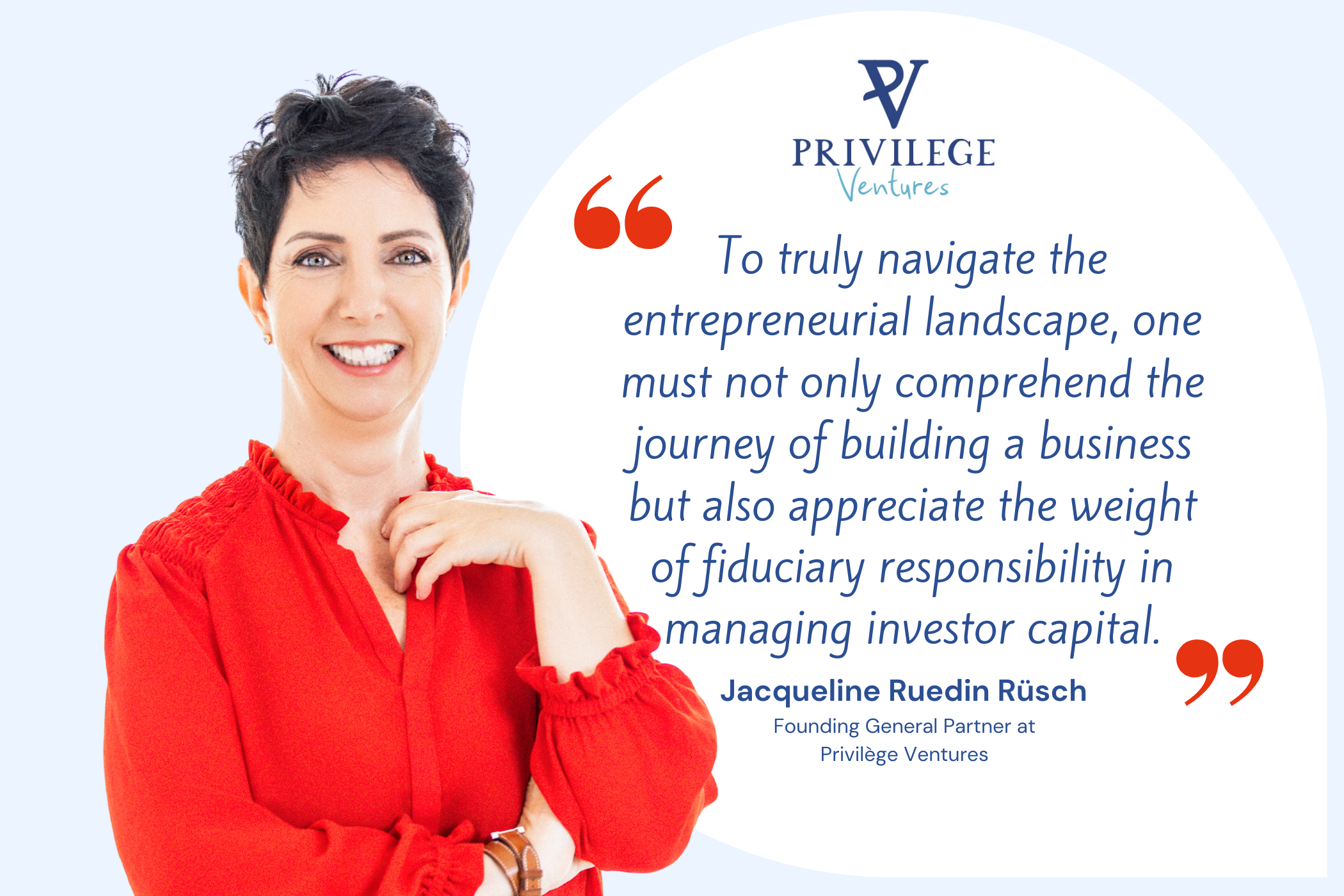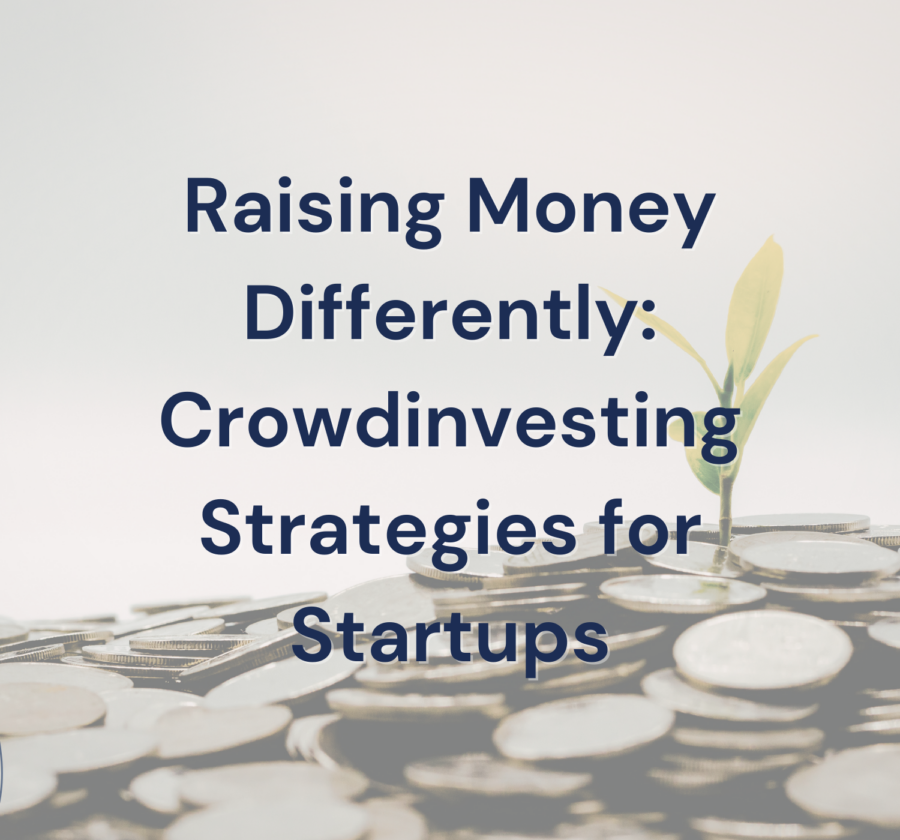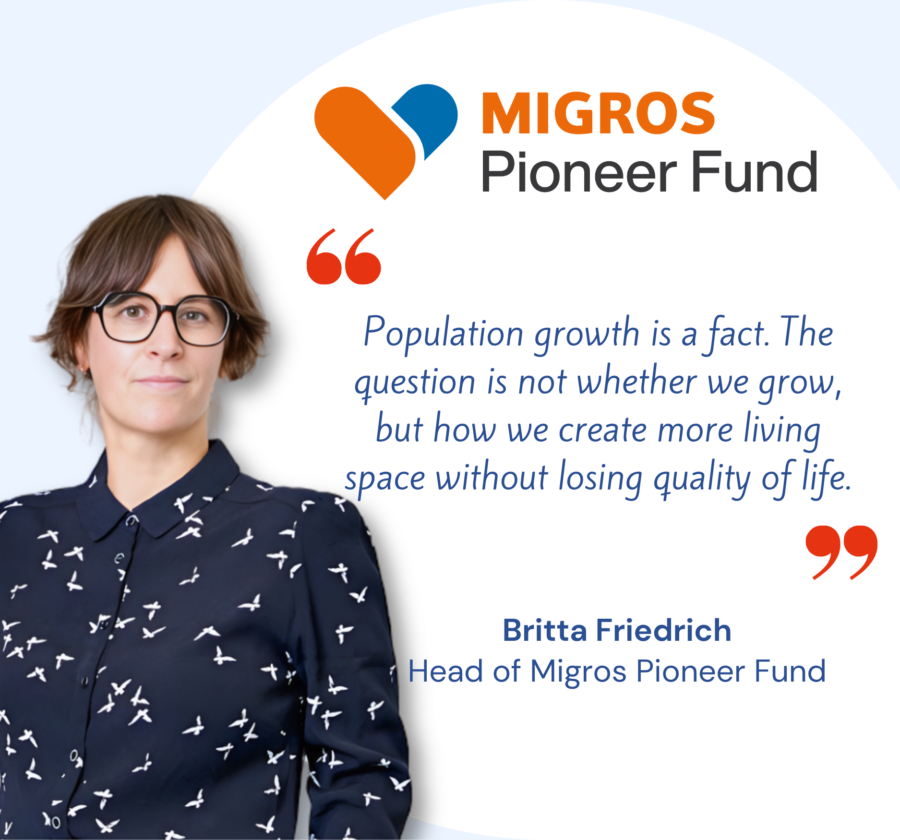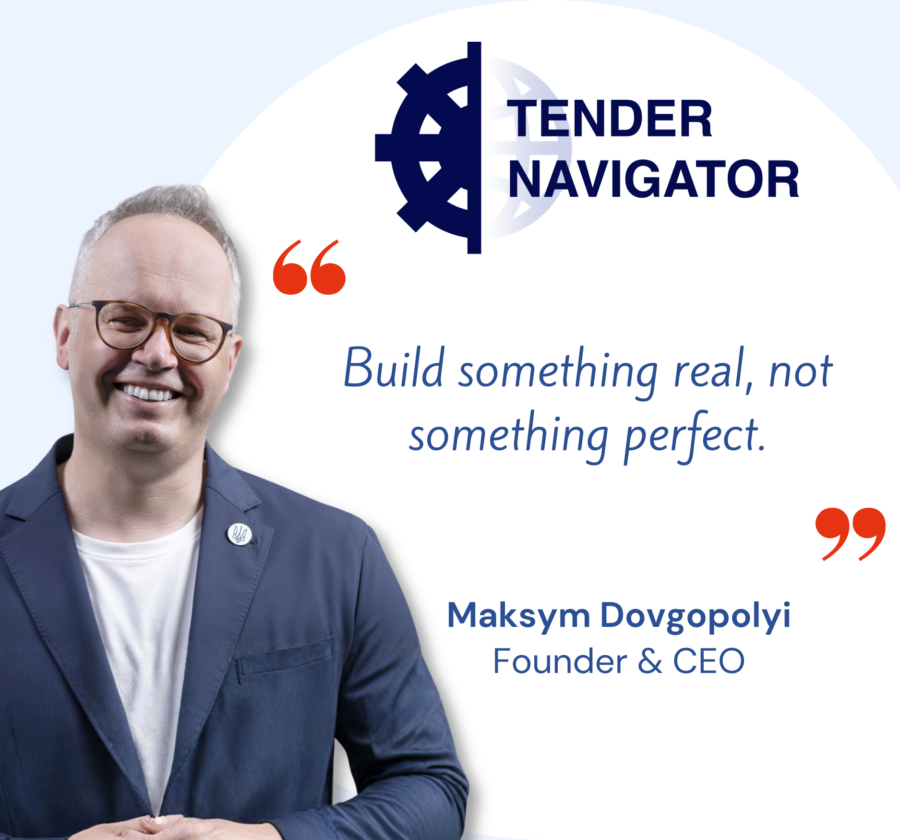
Meet Jacqueline Ruedin Rüsch, Founding General Partner at Privilège Ventures
Can you tell us about your previous experience, and also give us the background about how Privilège Ventures was founded and what motivated its establishment? How has the firm evolved from back then till today?
I studied economics and finance and spent about 15 years in the banking industry before founding my first company, a wealth management firm, back in 2011. I oversaw the growth of the company until I made the decision to concentrate exclusively on venture capital in 2020.
The company started initially as an additional activity within my wealth management firm. I wanted to diversify my clients’ assets with something that could be more meaningful and closer to the real economy, where they could see how their money was actually invested, and what type of impact this could have while increasing their portfolio diversification and lowering the volatility. We go back to 2016 when I launched the first fund and about at the same time met my co-founder, Lucian Wagner, with whom I developed the firm further until today. My intrinsic motivation was twofold: on one hand to stand out compared to other managers with some unique proposition, while on the other side to offer the possibility to participate in a very unique asset class in a professional way through a fund offering a personal relationship without the hurdles of managing single investments alone.
What do you see as the biggest challenges currently facing the venture capital industry, and how is Privilège Ventures navigating these challenges?
Personally, I see challenges as unexplored opportunities providing the chance to do more and better. The venture capital industry in general and in particular in Switzerland has seen an incredible development over the last few years with the soaring of many new players. This per se is a good thing as it allows the development of the asset class, creates some competition, and increases the professionality of the field. On the other hand, the last few months have shown that venture capital, while being very exciting especially when you compare it to other more traditional asset classes, is also extremely hard, as it requires a lot of time and incredible patience. The consequence is that VC is not a game for everyone and many will leave the space as they quite simply have underestimated these difficulties. Venture capitalists have operated in the same way for decades and there is the need for more innovative models which are happening here and there. At PV, we maintain a consistent operational approach, avoiding fashions & trends and instead investing with strong convictions. This sets us apart from certain investors who opt for comfort by following popular names.
Privilège Ventures has one fund focusing specifically on women-led early-stage startups across Europe. Please tell us more about this fund and why you decided on this specific focus.
We are very excited about this new fund, our Fund IV, and about the specific focus we decided to give to it. The Fund, for which we did a first closing recently, will invest exclusively in mixed gender teams. The reason is very simple: such teams are proven to perform better, to generate higher returns and to be more resilient. Therefore, we believe it’s a straightforward investment opportunity that has the potential to yield exceptionally high returns.
Could you tell us more about the investment portfolio you have built so far? What made you decide to invest in specifically these startups?
Over the years, we invested in 40 companies, mainly at their seed stage. Our first fund invested in some late-stage opportunities. This was not the case anymore starting with Fund II and since then our focus is really at the very initial phase of the company, pre-seed and seed. While we are generalists, we back convinced and strong founders building innovative technologies to increase human well-being and the health of the planet. Main sector focus is MedTech and DeepTech.
How do you typically add value to the startups you invest in, apart from capital infusion?
You probably heard a hundred times investors saying: we don’t provide only capital, but we are very hands-on. What this really means from case to case can actually be quite different. As a small firm with limited human resources, we acknowledge our inability to offer daily operational support. However, our team comprises seasoned professionals with extensive experience across various fields, enabling us to provide substantial value to founders who may be embarking on their first venture or encountering unfamiliar situations. This translates simply to being there to provide support when needed. Not only do we sit on many boards of our portfolio companies, but we offer the same support to the others on product / market fit analysis, marketing, fundraising, hiring, and expanding internationally. This last point is particularly important when companies want to go to the US. We bring in a wealth of experience here, since my co-founder spends about 1/3 of the year in Boston. Lucian Wagner’s extensive experience as an active and seasoned Angel Investor since 2001, operating across Switzerland, Germany, Austria, France, the US, and Israel, underscores his deep involvement in various startup ecosystems. Having supported over 35 companies, Lucian’s insights are honed by over two decades of expertise in the global semiconductor equipment industry. His tenure as the co-founder and CEO of a US Yield Management Software company, acquired by a California public company in 2001, has endowed him with invaluable entrepreneurial wisdom.
What is the typical investment size you consider for startups? And how many investments do you make per year?
The investment ticket can change depending on the fund from which we are deploying. The current Fund IV will have an initial ticket in the range of 500k-1m, depending on the stage of the company and how the round is coming together.
Can you describe your due diligence process? What factors do you consider before investing?
As you probably heard from many other investors, at the seed stage the key element is the TEAM. You can run whatever due diligence you want but ultimately it is really the founding team who will make the difference. This being said, of course, we run a deep due diligence to assess the technology, the product-market fit, the size of the opportunity and the probability and size of the exit. We run our DD internally, but we do rely on a number of external experts in various fields when it comes to checking scientific and technical validation.
How long does the investment decision-making process usually take?
This is quite specific to each single deal and the urgency that it may be linked to it. We can act very quickly if and when needed but we will never rush a decision until we have our own conviction on the deal. For us it is important to have sufficient time to get to know the team well and to be comfortable to move on with an investment. As this partnership will last many years we want to make sure that we are the right fit for the company and vice versa.
What level of involvement do you typically have with the companies you invest in? Do you take board seats or have observer rights?
We aim to be as close as possible with the companies we invest in. In general, we aim to lead rounds and hence orchestrate the round with the other investors. Whenever we lead, we will ask for a board seat which we are happy to give to a new board member when we feel we can no longer contribute to the development of the company.
What advice would you give to early-stage startups that are looking to secure investment from venture capital firms like Privilège Ventures?
VC at an early stage more than other sectors is a business of people where relationships are key. For this reason, I strongly recommend building those relationships with potential investors as early as possible and nurturing them by providing regular updates on milestones and progress made. We like to meet founders very early, sometimes even before the company has been incorporated, to allow both parties to have enough time to date each other before getting potentially married.
How do you measure the success of your investments, both in terms of financial returns and broader impact on the startup ecosystem?
A successful investment is usually the one that allows to provide a good return on your capital. In addition to the mere financial return, we highly believe that a success has also other parameters, among them, a technology that can improve the lives of patients, prevent or monitor diseases, increase safety in certain domains, accelerate drug discovery and many more. Our investors are of course driven by the financial return but also by being able to positively contribute to have an impact in some ways in the life of people, create a better future for the next generation and use the new technological discoveries for the good.
What is the typical timeline for exiting investments? Are you focused on short-term exits or long-term growth opportunities?
A fund has a maturity and hence a defined timeline by which it needs to exit its portfolio companies, typically we talk about 10 years’ time frame. We like to be patient investors as we think a company needs to have sufficient time to develop, especially as we invest in DeepTech and MedTech. After 5-6 years from the closing of the fund we expect to start some divestment and return funds to investors. There are cases where this can happen earlier but this will not be the usual case.
Privilège Ventures collaborates with the Swiss Startup Association. What was your motivation for this decision? Why do you think organizations like the SSA are needed?
Since the beginning, we have always contributed to the development of the Swiss ecosystem by giving back in many different ways. We strongly believe that only if all the actors of the ecosystem collaborate together, the entire community will benefit and founders will thrive.
Is there anything else that you would like to add/any question that we haven’t asked that you think is important?
To truly navigate the entrepreneurial landscape, one must not only comprehend the journey of building a business but also appreciate the weight of fiduciary responsibility in managing investor capital. Understanding the intricacies of entrepreneurship and the fiduciary obligations tied to managing investor funds is paramount. As someone who has walked the path of both an entrepreneur and an investor, I am familiar with the perspectives of both parties, striving to strike a harmonious balance of expectations on both sides.


